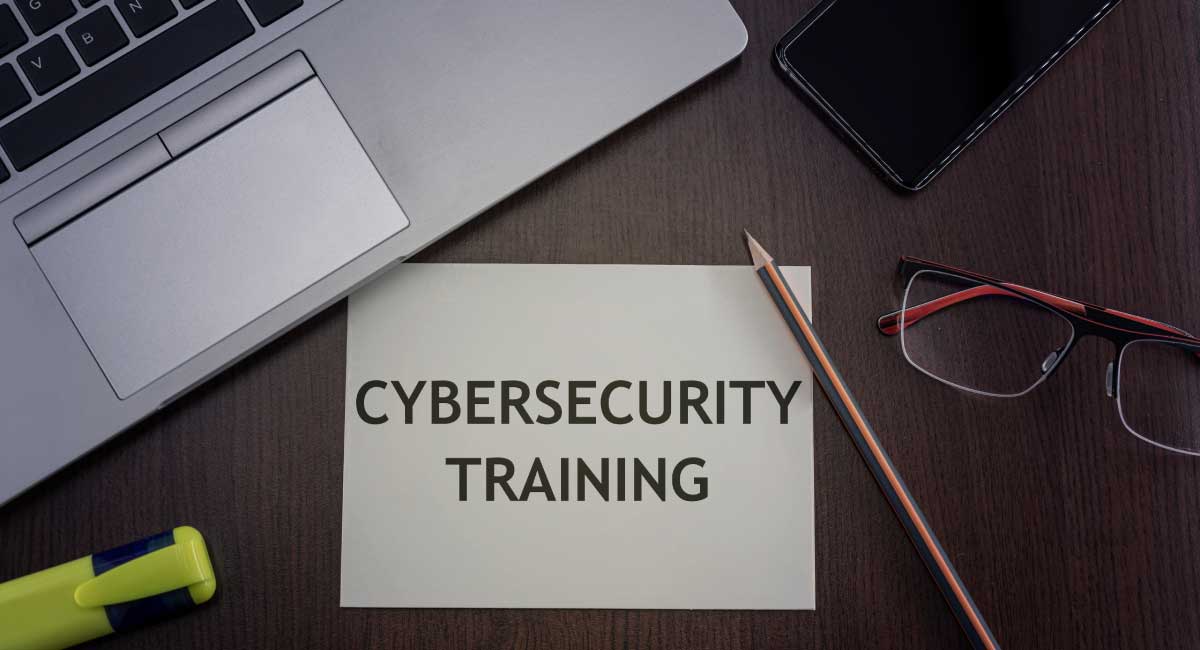The more today’s world relies on data and the Internet, the more critical it becomes to ensure our digital assets’ safety, security, and inviolability. There’s too much at stake, whether private sensitive data or billions of dollars worth of financial assets, to take any chances by being lax on security. Our IT world needs cybersecurity experts.
Naturally, this heightened demand means more cybersecurity training courses, and plenty are out there. But which are the best cybersecurity courses?
This article explores some of the best cybersecurity programs available today. We will also go back to the fundamentals and define cybersecurity, then discuss the characteristics of an excellent cybersecurity program. With this information, you can confidently shop and make an informed decision.
So, what’s cybersecurity, anyway?
What is Cybersecurity?
Cyber security is the discipline of protecting digital assets, such as data, networks, and devices, from unauthorized access, tampering, or criminal abuse, plus the practice of guaranteeing information confidentiality, integrity, and availability.
Cyber security employs processes, technologies, and controls to defend systems, programs, networks, devices, and data from cyberattacks.
What Makes a Good CyberSecurity Bootcamp?
Tastes and needs are subjective, but we can all agree that specific characteristics are common to good online courses. As we said before, there are lots of cybersecurity courses out there. And even though we are presenting a list of some of the best cybersecurity certificate programs, it is essential to establish a solid criterion for what constitutes a good bootcamp or course.
This way, you have a set of standards that you can apply should you look beyond this article for other online courses. You’re welcome!
So, what should you look for when choosing the right cybersecurity course?
- Does it jibe with your career objectives? Different courses present different aims and objectives, so you must ensure that the course’s objectives match yours. Is the course an intense “career track” that gets you job-ready in 12 weeks? Or is the bootcamp a prep course meant to prepare you to sit for a certification exam?
- What’s the course’s content? Course content is the most challenging characteristic for a potential student to judge because it typically consists of resources you have yet to learn about. Try to focus on the course’s general flow and structure. Does the course begin with an introductory or foundational course? In the context of cybersecurity, does it cover both offensive and defensive security procedures? Does the course include final projects and test preparation?
- What does the course cost? This standard is a big one for many people today. Shop around for something that fits your budget.
- What do other people think of the course? Always check reviews and ratings.
- How flexible is the schedule? Check whether the course is in-person or online and whether the courses have set times. Online courses could still have classes from 9 a.m. to 5 p.m., which may not suit your schedule, so consider looking into part-time programs and more flexible options, especially self-guided programs.
- Is the course current? Established course providers could have many good ratings and reviews, but that doesn’t necessarily translate into being current. A course that hasn’t been updated for multiple years puts students at a disadvantage in the fast-developing world of cybersecurity.
- What are the instructors like? Instructors don’t need a Ph. D or a master’s degree, but they should be qualified professionals with plenty of experience. This characteristic ensures the bootcamp will give students practical, up-to-date advice about the job and industry, plus solid academic and theoretical knowledge.
- Does the bootcamp include practical projects? Good bootcamps, including the ones we’re listing, emphasize the hands-on application of skills and real-world experience obtained through practical cybersecurity projects. After all, many of us learn best by doing.
- Does the course offer certification? cybersecurity certifications are recognized throughout the IT industry and are a reliable way to attract the attention of recruiters. Bootcamps that offer certifications or at least prepare students for certifications give their graduates a significant advantage.
So, with the above criteria in mind, let’s look at ten of the best cybersecurity courses available today.
The Ten Best Cybersecurity Courses You Can Take Today
Name: Caltech Cybersecurity Bootcamp
Provider: Caltech CTME
What will you learn? Caltech’s Cybersecurity bootcamp teaches offensive and defensive cybersecurity, network security, asset and inventory management, business continuity, data management, data privacy, and digital forensics.
Cost: $10,000
Course duration: 24 weeks
Name: Cyber Security Master’s Program
Provider: Simplilearn
What will you learn? The master’s program offers a comprehensive approach to protecting infrastructure, including securing data and information, running risk analysis and mitigation, architecting cloud-based security, achieving compliance, certified ethical hacking, security fundamentals, cloud security architecture, and CISSP training.
Cost: $2449
Name: CompTIA Security+ Certification Training
Provider: CompTIA
What will you learn? The eLearning with CertMaster Learn for Security+ program is a self-paced program that offers cybersecurity core knowledge and skills, including security assessments, digital forensics, data privacy and protection, mobile security, basic cryptography concepts, authentication and identity controls, and public key infrastructure, among others.
Cost: $545
Course duration: Self-paced
Name: CompTIA Advanced Security Practitioner (CASP+)
Provider: CompTIA
What will you learn? This cybersecurity course teaches security architecture, operations, security engineering and cryptography, governance, risk, and compliance.
Cost: CASP+ Basic Bundle: $823; CASP+ Exam Prep Bundle: $926; eLearning Bundle: $1338.
Course duration: Self-paced
Name: CompTIA PenTest+
Provider: CompTIA
What will you learn? This self-paced cybersecurity course is ideal for cybersecurity professionals responsible for penetration testing and vulnerability management. It teaches planning and scoping, information gathering and vulnerability scanning, attacks and exploits, reporting and communication, tools and code analysis.
Cost: Exam Voucher: $392; Basic Bundle: $565; CASP+ Exam Prep Bundle: $720; Live Online Training (includes live online training course, exam voucher and retake, CertMaster learn and labs, and CertMaster Practice): $2499.
Course duration: Self-paced
Name: ISACA Cybersecurity: Vulnerability, Identification & Analysis Online Course
Provider: ISACA
What will you learn? The ISACA Cybersecurity: Vulnerability, Identification and Analysis Online Course trains students in conducting a thorough vulnerability analysis. Participants learn to perform open-source research to collect information on exploits and vulnerabilities, helping them determine what to prioritize when addressing system vulnerabilities. The course teaches the roles and responsibilities of red, blue, and purple teams, the role of the security operations center (SOC), using tools and resources like robots.txt, the Google Hacking Database, and The Harvester, hashing and password-cracking processes, and more.
Cost: $399 for members, $499 for non-members.
Course duration: This course has a seat time of eight hours, and learners get course access for one year.
Name: ISACA Cybersecurity: Penetration Testing Online Course
Provider: ISACA
What will you learn? This penetration course gives students an introductory understanding of penetration testing and ethical hacking concepts. It teaches network architecture, TCP/IP protocol, identifying common vulnerabilities and attack types, information gathering techniques and reconnaissance tools, vulnerability assessment tools, how to write a vulnerability assessment report, and more.
Cost: $399 for members, $499 for non-members.
Course duration: This cybersecurity course has a seat time of eight hours, and learners get course access for one year.
Name: ISACA Cybersecurity: Digital Forensics Online Course
Provider: ISACA
What will you learn? This ISACA Cybersecurity: Digital Forensics Online Course gives students a deep understanding of best practices and principles of digital forensics. The course takes learners through the process of conducting a complete digital forensic investigation. Students will learn digital forensics’ legal and ethical considerations, such as the chain of custody. The course teaches how to recognize standard anti-forensic techniques and file modifications that are red flags for suspicious activity, how to handle damaged drives, digital evidence types and how they are stored, where forensic evidence is typically found, and more.
Cost: $399 for members, $499 for non-members.
Course duration: This course has a seat time of eight hours, and learners get course access for one year.
Name: Certified Ethical Hacker (C|EH)
Provider: EC-Council
What will you learn? The C|EH v12 course teaches skills that help students uncover vulnerabilities and secure systems, applications, databases, networks, and critical data. It teaches the fundamentals of footprinting and reconnaissance, ethical hacking, scanning, enumeration, and more. The course explores commercial-grade hacking tools, methodologies, and techniques.
Cost: On-demand: $2199, unlimited on-demand: $2,999, live instruction: $3,499
Course duration: The course consists of 20 modules taught over five days.
Name: Certified Cloud Security Engineer (C|CSE)
Provider: EC-Council
What will you learn? The C|CSE course teaches vendor-neutral concepts such as cloud security practices, frameworks, technologies, and vendor-specific materials to configure Azure, AWS, and GCP platforms. Students learn how to plan, implement, and execute an organization’s cloud security platform. The course covers pen testing, forensics, incidence response, risk management, business continuity, and disaster recovery.
Cost: On-demand: $2199, unlimited on-demand (club): $2,999, live instruction: $2,999
Course duration: This cybersecurity course consists of 11 modules.
Do You Want a Career in Cybersecurity?
According to the Salary.com job website, entry-level cybersecurity positions in the United States offer an annual average of $98,879. Many positions reach $110,000 and even higher salaries! Cybersecurity is a big deal today, and many businesses and organizations are incentivized to offer excellent compensation even to beginning cybersecurity staff.
Even if you are already in an IT position, it is wise to add to your skill set in such a critical field. Check out this fantastic cybersecurity bootcamp or other great courses.
The world needs secure data and systems. Will you answer the call?






